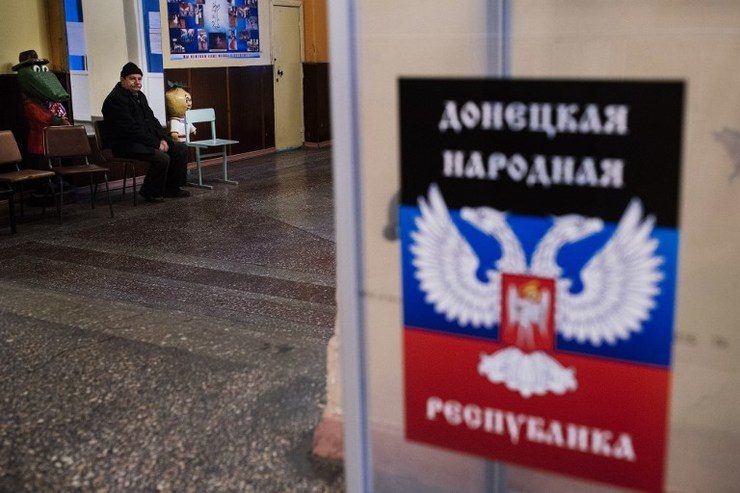SUMMARY
This is AI generated summarization, which may have errors. For context, always refer to the full article.

DONETSK, Ukraine – Separatists in eastern Ukraine voted Sunday, November 2, in controversial, Russian-backed leadership elections that Kiev and the West have refused to recognize and which threatened to deepen an international crisis over the conflict.
The elections in the self-declared Donetsk People’s Republic and Lugansk People’s Republic – based around the two main rebel-held cities – were billed as bringing a degree of legitimacy to the makeshift military regimes that already control them.
“I hope that our votes will change something. Perhaps we will finally be recognized as a real, independent country,” Tatyana Ivanovna, 65, said as she waited to cast her ballot in Donetsk’s school number 104.
“We need to be able to live normally,” said Valery Vitaliyevich, 50. “It’s terrible being afraid for your family at every bombardment. I will vote hoping that this will help the authorities to defend our interests against Kiev.”
But Ukrainian President Petro Poroshenko blasted the election as a violation of an already tattered truce deal signed on September 5, calling them “pseudo-elections that terrorists and bandits want to organize on occupied territory.”
They come after days of heavy fighting across the region.
Russia, which supports the rebels but denies sending troops to fight on their side, says it will recognize the results of the elections.
The United States and European capitals, which have imposed heavy economic sanctions on Russia, back Kiev in condemning the polls as illegal.
Rebel chiefs
Both self-declared republics were choosing new presidents and parliaments, but there was little question that the current unelected rebel chiefs – Alexander Zakharchenko in Donetsk and Igor Plotnitsky in Lugansk – would be confirmed in their posts.
No international election monitors were present for the vote, and no minimum turnout has been set by the organizers, reflecting uncertainty over how many voters could turn out.
“These elections are important because they will give legitimacy to our power and give us more distance from Kiev,” said Roman Lyagin, election commission chief of the Donetsk People’s Republic.
The war has killed more than 4,000 people, including more than 300 in the last two weeks, since erupting in April. A month earlier, Russian troops invaded Ukraine’s southern province of Crimea, which was then annexed by Moscow.
In a four-way telephone call on Friday, October 31, the leaders of Ukraine, Germany and France urged Russian President Vladimir Putin not to recognize the polls.
The White House on Friday said: “We deplore the intent of separatists in parts of eastern Ukraine to hold illegitimate so-called local ‘elections’ on Sunday.”
The European Union and the NATO military alliance have also condemned the polls.
Meanwhile, Ukraine’s national security service, the SBU, issued a warning late on Friday of the risk of “provocations” during the separatist votes.
“The process of voting itself and of taking part in these elections is dangerous,” the SBU official, Markiyan Lubkivsky, said. “Serious provocations are being prepared that can then be blamed on the Ukrainian authorities.”
More violence seemed certain, given a spate of intense clashes across the conflict zone in recent days, and rebel threats to expand their offensive to the Ukrainian Black Sea port city of Mariupol.
On Saturday, November 1, Ukrainian authorities announced the deaths of seven more soldiers and at least six wounded in separatist shelling.
The rebels rarely give out casualty figures.
Polls opened at 0500 GMT and were due to close at 1700 GMT. – Rappler.com
Add a comment
How does this make you feel?
There are no comments yet. Add your comment to start the conversation.